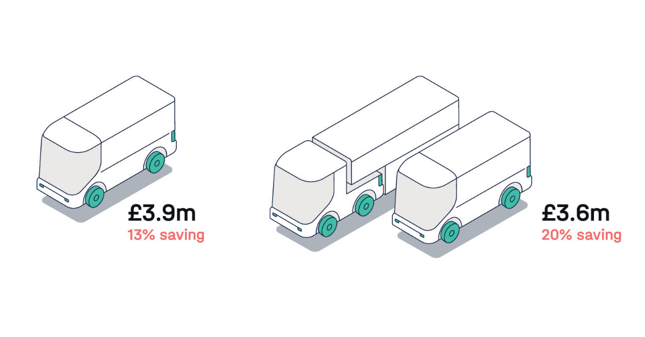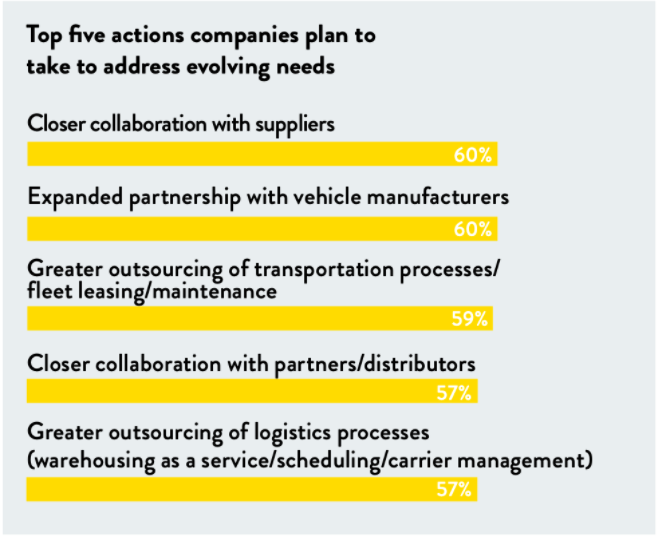The pandemic tested the global logistics industry like never before, causing massive disruptions, introducing new regulations, and increasing costs. As the industry begins to envision a post-COVID future, companies need to rethink logistics to benefit the bottom line, build resilient operations and deliver customer satisfaction.
Logistics and supply chain management are undergoing deep transformation; increasing the need to digitise at speed, and put customer expectations first. In the wake of COVID-19, it’s even more evident.
The challenges brought on by the pandemic cast light on neglected and outdated areas within logistics. Almost overnight, stock depletions, warehouse delays, and a lack of visibility meant that companies without the flexibility to switch things up quickly suffered. While customer orders spiked at Amazon, for example, fulfilment slowed and Q2 operational costs increased by $4B.
Yet companies have an opportunity now to reshape their logistics and achieve increased efficiencies and resilience. One of the most effective ways to do this is moving from a single-source logistic provider, to a multi-carrier logistics strategy.
Trends driving rapid change
Consumer preferences and expectations
Today's consumers want sustainable, convenient, and fast. They expect to get anything delivered, from anywhere in the world within a couple of days, at the right price. This 'Amazon effect' is having a dramatic impact on logistics, and the companies that refocus their efforts to deliver on the needs of end-consumers are gaining competitive advantage.
COVID-19: jumps in online sales and surcharges
The pandemic is not only affecting supply levels and the movement of goods but consumer preferences, too. In the wake of lockdowns and shop closures, buyers moved online. Global e-Commerce sales grew 34% YoY in June 2020; the highest growth rate reported since March 2008.
But our own research shows that the costs of moving and delivering stock has skyrocketed recently for businesses due to COVID surcharges. Logistics carriers have been passing on additional costs to businesses. Carrier challenges like staff shortages, health regulations, social distancing rules, closed borders, delayed freight shipping, and limited capacity on commercial flights ushered in a 30% increase in shipping spend for companies. This was felt even more by businesses with a single or restricted list of logistics carriers without a flexible and adaptive carrier selection process.
Technology enabling smarter decision-making
Technologies like Artificial Intelligence (AI) and Machine Learning (ML) are allowing organisations to make better logistical decisions with little to no human input. From predictive analysis at purchase-level to carrier selection and route optimisations at delivery stages.
Business practices: cost-cutting and collaboration
In times of crisis, companies look at existing systems and structures to see where cost savings can be made. We're seeing more companies adopt strategies like multi-provider logistics and technologies like AI to help them lower spend. McKinsey estimates that businesses will see savings of between $1.3trn and $2trn a year in from using AI in supply chains and manufacturing.
Many are also looking beyond their own outfits to get jobs done; engaging logistics technology providers and building an ecosystem of trusted carriers. This collaboration with third-parties, end-customers, and technology platforms is having a positive impact on the entire supply chain. A recent Forbes survey indicated that companies value collaboration and plan to invest in the area to stay in line with customer expectations.
Source: Forbes Insights: Logistics, Supply Chain And Transportation 2023: Change At Breakneck Speed
A multi-provider approach in a post-COVID-19 world
Unlike single-sourcing, a multi-provider approach spreads logistics activities across multiple providers, increasing efficiencies, decreasing costs, and improving customer experience. Instead of relying on one provider to fulfil all orders, organisations work with 3-5 providers to find the best value route taking into account the relevant criteria like cost, delivery service (e.g. 1-hour nominated slot, collection box etc.), appropriate delivery date, performance reliability, special handling requirements, and customer communications.
Our study found that having a portfolio of multiple logistics providerscan save businesses 30% on shipping costs.

In a simulated operation using 7Bridges smart logistics technology, we modelled what happens when using one, two, or more providers to ship goods around the network. We compared 12 major logistics providers, using their true rates and applied the same example logistics activity: 100,000 shipments, 15 countries, and a mix of 1-50kg packages.
Comparing carrier A and B, we found a 13% price difference. And by using just two providers and choosing the best value on a route-by-route basis, we found another 7% saving—raising the total saved to 20%. By adding more providers, it’s possible to push the total saving over the 30% mark.
To read more about the criteria, methodology, and full savings achieved,
download the white paper here.
The good news is that contracting with multiple providers doesn't have to result in more operational complexity. Although a single provider solution may seem like the simpler option, our data shows that it’s actually more expensive to run and harder to maintain good customer service levels in the event of a problem.
Platforms like 7bridges utilise AI to make smart, automated decisions based on complex real-time and historical data to choose the right supplier for the job. This allows companies to cut their delivery times significantly, reduce emissions and costs with optimal routes, and provide exceptional levels of customer service (without adding operational complexity).
Find out more in the white paper: How much can you save by using multiple logistics providers?

